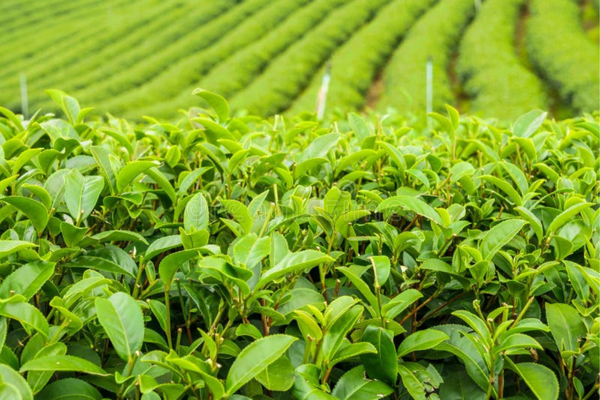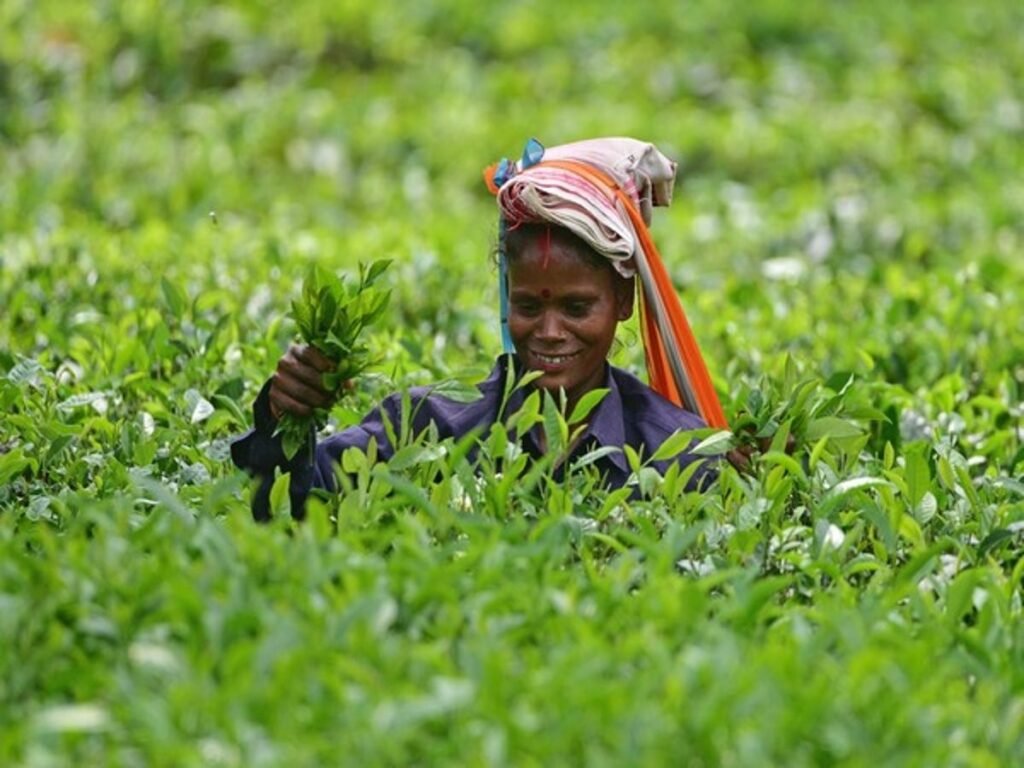The Tea Association of India has said that the production of tea in Assam and West Bengal might fall by 50% if the two states do not receive sufficient and well-distributed rainfall immediately.
About Tea Crop (Camellia sinensis):
- Camellia sinensis is an evergreen shrub or small tree belonging to the plant family Theaceae.
Climatic Requirements:
- Optimal temperature range: 20-30°C.
- Rainfall needs: 150-300 cm, evenly distributed throughout the year.
- Prefers a humid and moderate climate.
Soil conditions:
- Requires deep, well-drained, friable loamy soils.
- Soil should be rich in humus and organic matter.
- Ideal soil pH is between 4.5 to 5.5.
Major Tea-producing States in India:
- Assam,
- West Bengal (including Darjeeling, Dooars, Terai),
- Tamil Nadu (including the Nilgiris),
- Kerala, and
- Karnataka.
Plant Physiology:
- Tea plants are typically pruned to remain under 2 meters in height.
- Its leaves range from 4 to 15 cm in length and 2 to 5 cm in width, with young leaves featuring light green color and white hairs.
- The flowers of the tea plant are white and yellow, measuring 2.5 to 4 cm in diameter.
Common diseases and pests:
- Blister blight, red rust, and root-knot nematode.
- Pest management often involves regular pruning and the use of organic fertilizers.
About Tea Board of India:
- The Tea Board was established in 1953 under the Tea Act and began its operations in 1954.
- Its headquarters is located in Kolkata, West Bengal.
Functions and objectives:
- It is tasked with the development and promotion of the tea industry in India.
- Implements various schemes for promoting tea and improving its quality.
- Regulates tea production, exports, and marketing.
- Facilitates research and development in tea cultivation and processing techniques.
Structure:
- The Tea Board comprises 31 members including the Chairman.
- Its membership includes representatives from Parliament, tea producers, traders, brokers, consumers, state governments, and trade unions.
- It is reconstituted every three years.
Schemes and initiatives:
- Tea Development and Promotion Scheme.
- Wage Compensation Scheme.
- Tea Boutiques, aimed at enhancing retail presence
Ref: Source
| UPSC IAS Preparation Resources | |
| Current Affairs Analysis | Topperspedia |
| GS Shots | Simply Explained |
| Daily Flash Cards | Daily Quiz |


